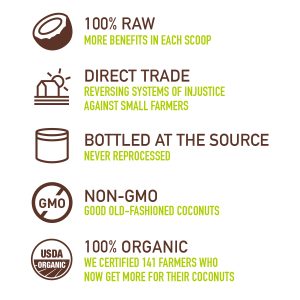In a fast-paced world dominated by convenience and instant gratification, the concept of mindful eating has emerged as a powerful antidote, not only for personal well-being but also for the health of the planet. Mindful eating, rooted in the principles of awareness, intention, and gratitude, goes beyond the act of consuming food—it encompasses a broader understanding of the environmental impact of our dietary choices. In this article, we explore how mindful eating practices contribute to a more sustainable and eco-friendly world, fostering a connection between individuals, their food, and the planet.
1. Reduced Food Waste:
Mindful eating starts with an awareness of portion sizes and a conscious effort to savor each bite. By paying attention to hunger cues and being present during meals, individuals are less likely to overeat, leading to a reduction in food waste. The United Nations estimates that approximately one-third of all food produced for human consumption is lost or wasted globally. Mindful eating addresses this issue at its core, promoting a culture of appreciation for food and a reduction in unnecessary waste.
2. Appreciation for Whole Foods:
Mindful eating encourages an appreciation for the simplicity and natural goodness of whole foods. Instead of relying on highly processed, packaged items, individuals practicing mindful eating often choose nutrient-dense, whole foods that require minimal processing. This shift not only benefits personal health but also aligns with sustainable food choices by reducing the environmental impact associated with the production and disposal of processed foods.
3. Connection to Local and Seasonal Produce:
Being mindful of the origins of the food on one’s plate fosters a deeper connection to local and seasonal produce. Mindful eaters often seek out fresh, locally sourced fruits and vegetables, aligning their choices with what is in season. This practice supports local farmers, reduces the carbon footprint associated with long-distance transportation, and promotes biodiversity by embracing the variety that local ecosystems naturally offer.
4. Support for Sustainable Agriculture:
Mindful eating extends beyond the act of consumption to a consideration of how food is produced. Supporting sustainable agriculture becomes a natural extension of this mindfulness. Individuals may choose products that are grown using environmentally friendly practices, such as organic farming, agroecology, and permaculture. By supporting sustainable agricultural methods, mindful eaters contribute to the health of the soil, water, and ecosystems.
5. Mindful Consumption of Animal Products:
For those who include animal products in their diet, mindful eating involves a conscious consideration of the environmental impact of meat and dairy consumption. Mindful eaters may opt for ethically sourced and sustainably produced animal products, reducing the demand for industrial farming practices that contribute to deforestation, water pollution, and greenhouse gas emissions. This shift reflects a holistic approach to mindful living that acknowledges the interconnectedness of personal choices and planetary well-being.
6. Promotion of Plant-Based Eating:
Mindful eating often aligns with a greater emphasis on plant-based eating. Whether embracing a fully vegetarian or flexitarian approach, mindful eaters recognize the environmental benefits of reducing reliance on animal agriculture. Plant-based diets generally have a lower environmental footprint, requiring less land, water, and energy resources compared to meat-intensive diets. By choosing plant-based options mindfully, individuals contribute to a more sustainable and eco-friendly food system.
7. Conscious Water Usage:
Water scarcity is a pressing global issue, and mindful eating extends to the conscious use of water resources. Individuals practicing mindful eating are more likely to choose foods that require less water in their production. For example, fruits, vegetables, and grains generally have lower water footprints compared to the water-intensive production of certain animal products. By making water-conscious food choices, mindful eaters contribute to the preservation of this vital resource.
8. Mindful Packaging Choices:
Beyond the contents of the food itself, mindful eaters extend their awareness to the packaging that comes with it. They may choose products with minimal or eco-friendly packaging, opt for reusable containers, and support brands that prioritize sustainable packaging solutions. Mindful packaging choices contribute to the reduction of plastic pollution and promote a circular economy by supporting materials that are easily recyclable or biodegradable.
9. Mindful Cooking Practices:
Mindful eating is intricately linked to mindful cooking practices. Individuals who practice mindfulness in the kitchen are more likely to minimize energy consumption by using efficient cooking methods, such as steaming or using energy-saving appliances. They may also repurpose food scraps for composting, reducing overall kitchen waste. Mindful cooking involves an appreciation for the entire food preparation process, from sourcing ingredients to minimizing resource use.
10. Encouragement of Local Food Initiatives:
Mindful eaters often engage with local food initiatives, such as farmers’ markets, community-supported agriculture (CSA) programs, and farm-to-table movements. These initiatives promote direct connections between consumers and local producers, fostering a sense of community and reducing the environmental impact of long supply chains. By actively participating in local food systems, mindful eaters contribute to the resilience and sustainability of their communities.
11. Educating Others on Sustainable Practices:
The mindful eating journey often extends to the desire to share knowledge and educate others about sustainable and eco-friendly practices. Mindful eaters become advocates for a greener world by engaging in conversations about the environmental impact of dietary choices, sharing tips on sustainable living, and encouraging others to adopt mindful eating practices. This ripple effect contributes to a broader cultural shift towards conscious consumption.
12. Mindful Food Citizenship:
Mindful eating transcends personal habits to embody a form of “food citizenship.” Mindful eaters recognize the interconnectedness of their choices with larger social and environmental systems. This awareness motivates them to engage with food-related issues beyond their individual diets, such as advocating for policy changes, supporting initiatives that address food insecurity, and participating in community projects that promote sustainable living.
13. Mindful Exploration of Cultural Diets:
Cultures around the world have unique diets that often reflect sustainable practices based on local ecosystems. Mindful eaters may explore and appreciate these cultural diets, adopting elements that align with sustainability. By embracing diverse culinary traditions that prioritize local, seasonal, and plant-based ingredients, individuals contribute to the preservation of cultural and environmental heritage.
14. Connection to Food Supply Chain Transparency:
Mindful eaters value transparency in the food supply chain. They seek out information about where their food comes from, how it is produced, and the practices employed by the brands they support. This demand for transparency encourages companies to adopt sustainable and ethical practices, fostering a shift towards a more accountable and eco-friendly food industry.
15. Promotion of Food System Resilience:
Ultimately, mindful eating practices contribute to the resilience of the overall food system. By making choices that prioritize sustainability, individuals become active participants in building a more resilient and adaptive food system. This resilience is crucial in the face of climate change, population growth, and other challenges that threaten the stability of global food production.
In conclusion, mindful eating practices offer a pathway to a more sustainable and eco-friendly world. By fostering awareness, intentionality, and a deeper connection to the food we consume, individuals can make choices that prioritize both personal well-being and planetary health. Mindful eating is not just a solitary act; it is a collective movement that has the potential to transform the way we interact with our food, each other, and the environment, paving the way for a greener and more sustainable future.

















